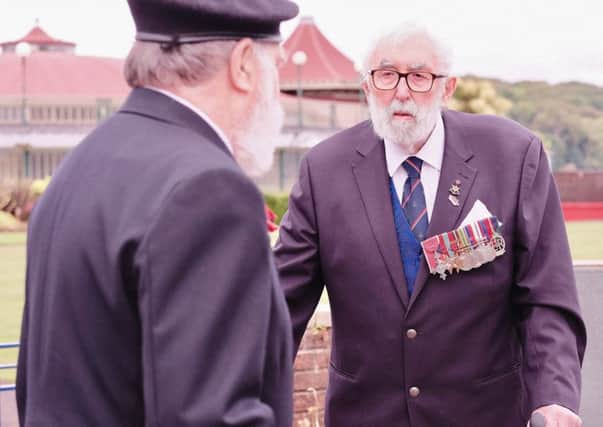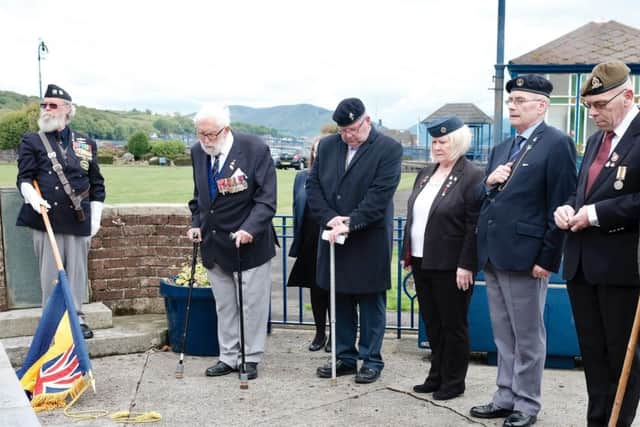D-Day remembrance service held on Bute 75 years on


The service was led by Gordon Scott, former Royal Navy and World War Two veteran who landed ashore on the beaches of Normandy on June 7, 1944, the day after D-Day.
Royal British Legion Isle of Bute branch president Matt Reay thanked local people for attending and spoke of the magnitude of D-Day.
Advertisement
Hide AdAdvertisement
Hide AdHe said: “It was a massive undertaking 75 years ago to move that number of people and vehicles. I don’t think it could be done nowadays, even with modern technology.


“I think the people going there knew it was almost last chance saloon and it was dependant on them succeeding. Otherwise we would have been in a whole different scenario.
“We had about 15 members at the service and there were probably seven or eight members of the public there.
“A major part of the job for the legion is supporting and organising events to commemorate those that have fallen.
“It’s more pertinent obviously if you head out to Belgium. The sheer number of white crosses – it’s row upon row – it certainly brings into perspective how many people were lost out there.
“Special thanks to Jacqueline Beckwith for organising the soup and sandwiches for after the service. And thanks to the members of the public that attended.”
Matt spoke of the impact D-Day had on communities but of the strong spirit that held them together. He said: “PTSD and whatever wasn’t known about back then. I think they suffered more after battle. But by the same token they had a community to go back to .
“Nowadays we have lost that sense of community, or as much support from the community. But I think a lot of that is down to the fact families are more split up and can’t afford to live in the same street as they did before. So that community side of things is not like it used to be.
Advertisement
Hide AdAdvertisement
Hide Ad“Obviously back then you lost a fair chunk of the men from your town or village in one hit so it had a massive impact.
“We always mark these things as a big event. We tend to focus on the First and Second World Wars obviously. There have been so many conflicts, if we tried to commemorate them all we would be at the war memorial every week.”
Matt also raised the struggles of the people on the home front during the war.
He said: “Even after the war, people were still on rationing, families were split up by men not coming back and women having to work.
“We make a lot of fuss about veterans and I’m a veteran myself, but the women and families had a harder job with the uncertainty. Worrying about whether your house is going to be there in the morning or not. Soldiers at least know what is happening on a day to day basis, it’s all planned out, they don’t have to worry about getting food or whatever.
“But we as a society tend to focus more on the troops.
“There’s a big misconception that you have had to have military service to join the legion. That’s not the case, it’s open to everyone.
“We are supported by members of the general community who do a lot of work for not very much in return.”